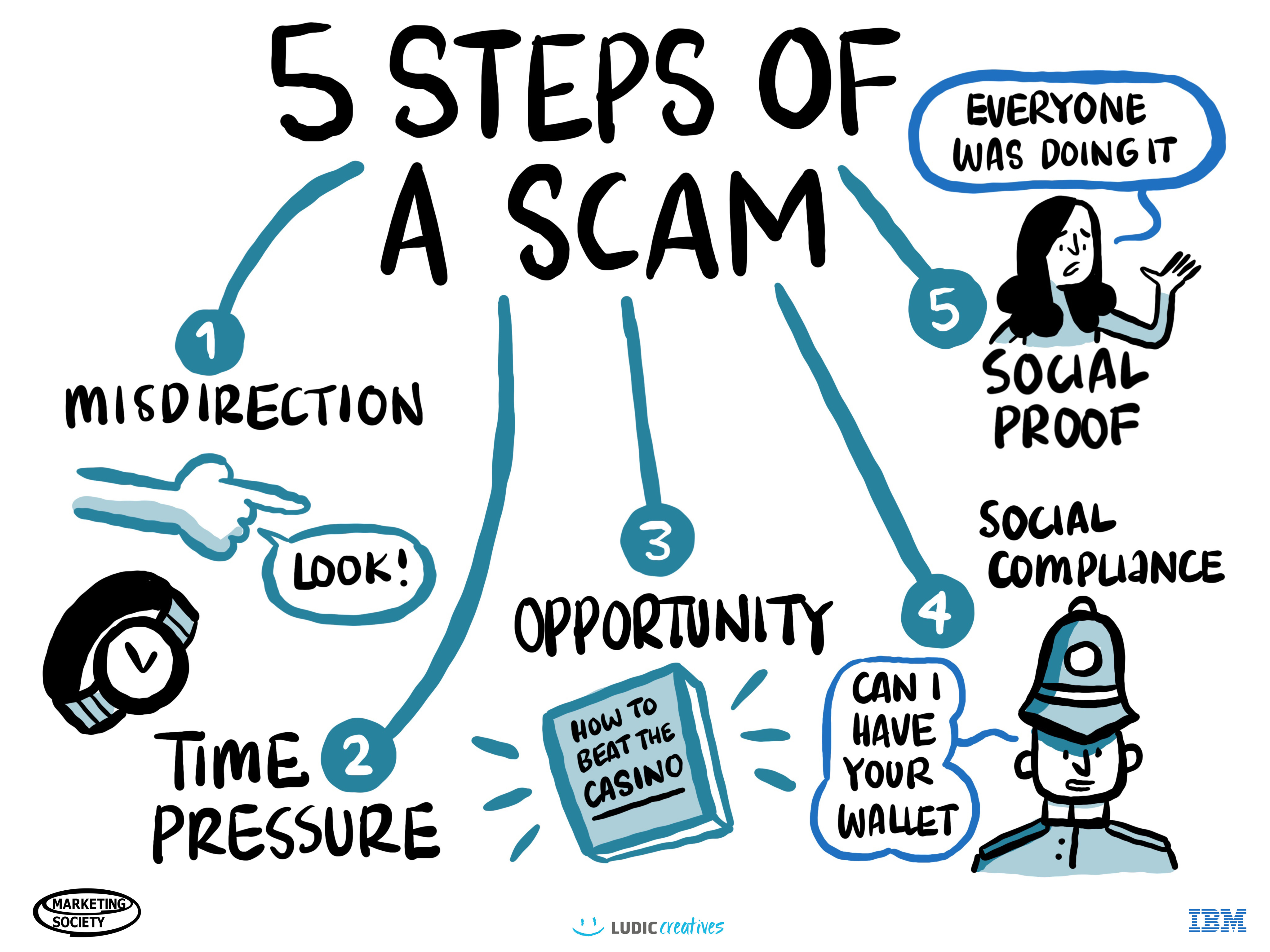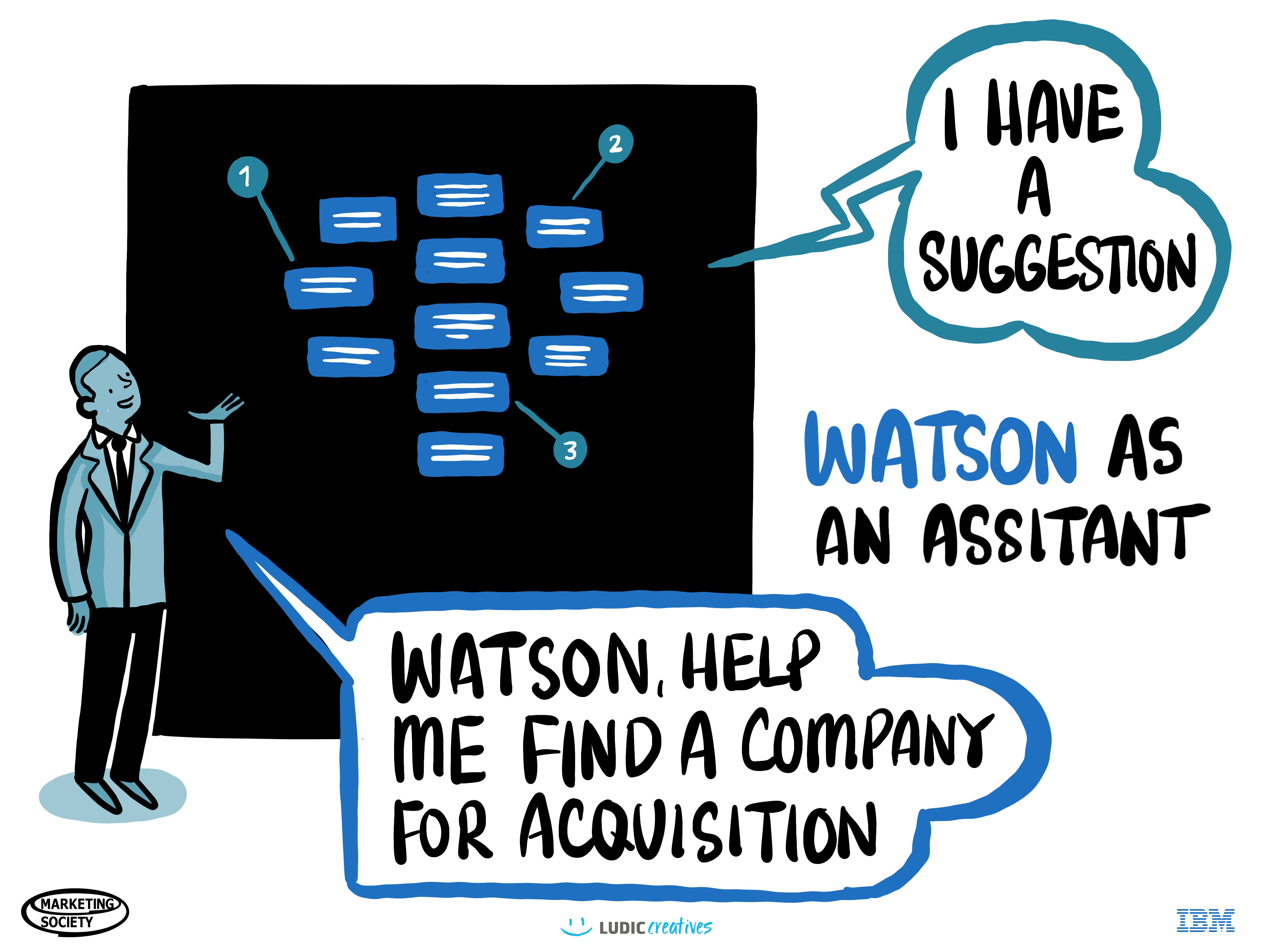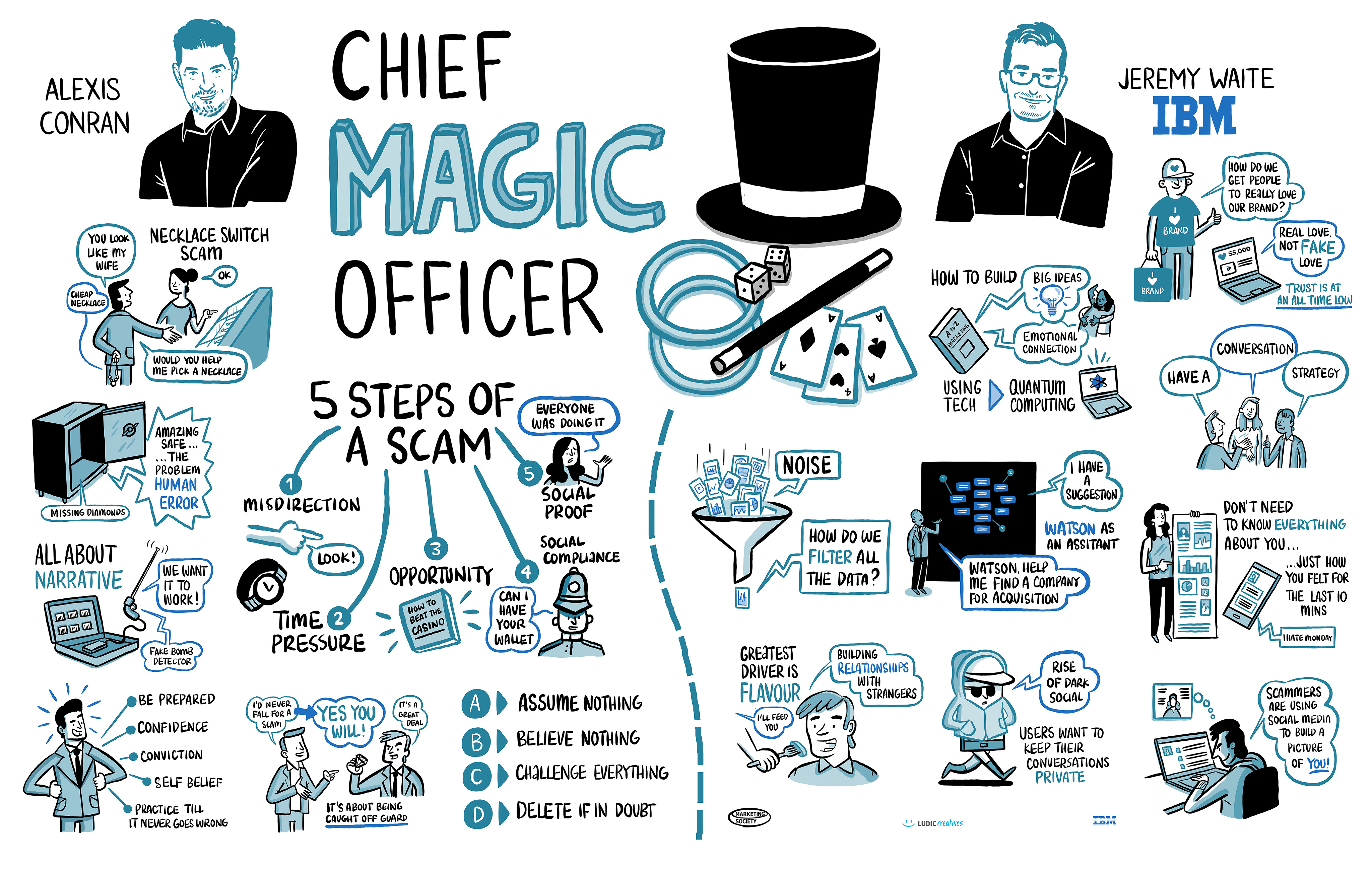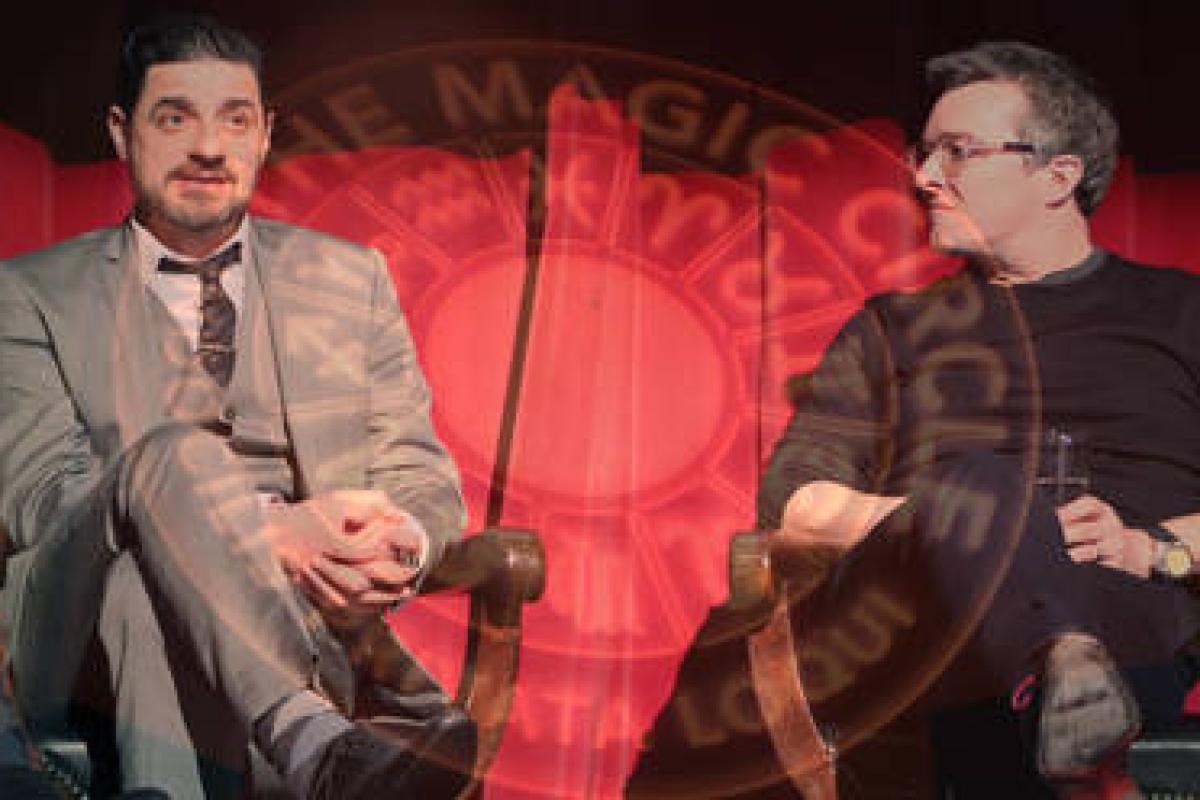At the infamous members’ club The Magic Circle, home to world-renowned illusionists and magicians, The Marketing Society and IBM hosted a very different kind of magic show; The Chief Magic Officer.
Our two speakers - The Real Hustle's Alexis Conran and IBM's Jeremy Waite - showed us the magic of marketing, from how hackers are tapping into social media to attack business professionals to what the future of marketing could look like in just two years.
Here are just a few things we learned:
Scamming has nothing to do with your IQ but by being caught off guard
We know what you're thinking: It will never happen to you.
Surprise, surprise, that's what 95% of the public will be thinking but from having an app to replicate texts from a bank to hacking your social media accounts in order to infiltrate your business, Alexis Conran showed just how vulnerable we all really are.

The main reasons people fall for scams?
1. Misdirection. As marketers, we may be familiar with the phrase, 'sell the benefits not the features'. If it sounds too good to be true, it probably is.
2. Time pressure. Critical thinking goes out of the window under just a little bit of pressure as you’re forcing individuals to make a decision on instinct rather than facts. If you feel like you're being pressurised into making a decision, grab a cuppa and take 5 minutes before you act.
3. Opportunity. Otherwise known as, “Good deal syndrome”. People are attracted to the idea of beating the system, so when you're told 'for you, we will...', it can be hard to resist.
4. Social compliance. Did you know that's it's part of our basic instinct to comply with certain signs and symbols? For example, a man with a high-vis jacket has authority, a man in a suit is trustworthy. Hustlers are the hackers of human nature and they're applying this to a digital level, using Photoshop to make websites and emails look the real deal. So, before you subscribe/ book online/ reply, inspect what you are being asked for, think 'who’s on the other end?' and don't believe anything until you have hard evidence.
5. Social proof. Because so many people have done the same thing you give it credence. For example, if other cars are driving down the road slightly faster than the speed limit, you are likely to follow suit. Why? Because we like to mimic what’s going on around us. Remember, question everything. Just because others are doing it, it doesn't mean it shouldn't be challenged.
If you’ve got people using it, eventually they’ll find a bomb. It’s the law of averages. All you have to do is find one and you’ve convinced yourself. We need to turn facts into equally as good stories.
The future belongs to the Chief Magic Officers
With technology advancing at an unprecedented rate the role of the CMO will have to evolve.
British science fiction writer, Arthur C. Clarke said, “any efficiently advanced technology is indistinguishable from magic”.
A few interesting facts that Jeremy Waite shared:
- In five years quantum computing will replace traditional computing
- 90% of all the data in the world was created in the last 12 months and it’s going to be 40% bigger in five years
- A million devices will be added to the internet every hour by 2020
- By 2020 all browsing activity will happen without a screen, through voice technology.
And although the technology and advances in the marketing industry are exciting and feel like magic, marketers are overwhelmed with all this new data. They don’t know what to do with it.
That's why IBM doesn't invest money in branding but on people - 'We spend £6 billion on 3000 research scientists and Nobel Prize Winners' - interestingly, successful companies invest five times more in people than technology.

8% of the world top brands are getting rid of CMO roles
The Chief Marketing Officer role is being disrupted because it's not fit for purpose anymore, with brands such as Coca-Cola ditching the traditional CMO role in favour of growth officers instead.
Jeremy Waite suggests the traditional c-suite role will be split into three:
- chief enterprise officer
- chief strategic officer
- chief commercial officer
And even if your company isn't making the chief marketing officer role redundant, 80% of CEO's and 55% of consumers don’t trust CMO's.
So, Artificial Intelligence (or Intelligent Assistant, as Jeremy puts it) will be crucial in the evolving CMO role.
To put it simply, when it comes to marketing, there are two ways to sell: You can inspire or you can manipulate.
Through their dashboard and open source data, IBM Watson are helping CMO's build emotional connections based on trust using technology.
For example, marketers can analyse consumer's emotions on Twitter to figure out how to inspire them, without asking for any information.
Technology will, therefore, play a huge part in not only the breaking but also the making of the new CMO role.

And finally...
- Want to make your social media accounts more secure? Alexis Conran suggests using a password manager like 1password to stop hackers getting your personal and professional details
- 50 API’s from Watson are open source for you to download and learn from, via their IBM Bluemix Cloud
- We need to turn facts into equally good stories – provide your consumers with the right narrative and they’ll create the magic in their own minds
- Assume nothing, believe nothing, challenge everything, delete if in doubt.
By Orianna Rosa Royle, digital assistant at The Marketing Society.
This event was in partnership with IBM.



